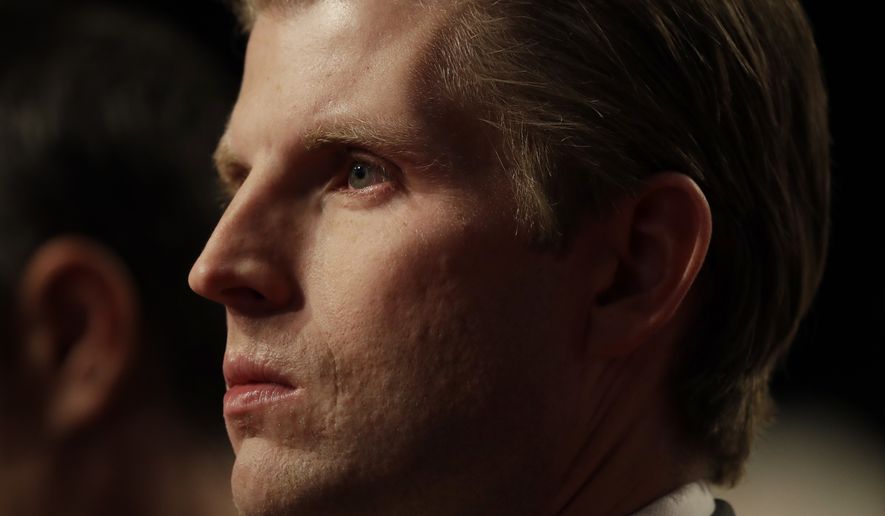At least one part of the Trump empire isn’t satisfied with Lawrence O’Donnell’s apology and walkback of an unverified piece of hearsay about purported ties between President Trump and the Kremlin.
Eric Trump, who is executive vice president of the Trump Organization, tweeted Wednesday evening that the company will take Mr. O’Donnell and MSNBC to court over the host saying on Tuesday night that Russian oligarchs tied to President Vladimir Putin had co-signed Mr. Trump’s loans with Deutsche Bank.
“This was a reckless attempt to slander our family and smear a great company. Apologies are not enough when the true intent was solely to damage and cause harm. As a company, we will be taking legal action. This unethical behavior has to stop,” he wrote, going on to tag Mr. O’Donnell and MSNBC.
This was a reckless attempt to slander our family and smear a great company. Apologies are not enough when the true intent was solely to damage and cause harm. As a company, we will be taking legal action. This unethical behavior has to stop. @Lawrence @MSNBC https://t.co/i4X6CcdkCm
— Eric Trump (@EricTrump) August 29, 2019
Earlier Wednesday, Mr. O’Donnell had apologized for making the single-anonymous-source claim on the Rachel Maddow program, acknowledging “an error in judgment by reporting an item about the president’s finances that didn’t go through our rigorous verification and standards process. I shouldn’t have reported it and I was wrong to discuss it on the air.”
He noted even Tuesday night that he hadn’t seen the supposedly Kremlin-cosigned documents and an MSNBC producer later elaborated that Mr. O’Donnell’s source himself hadn’t seen the purported papers either.
Attorney Charles Harder, in a letter to NBC News executives posted online by the Daily Mail, called Mr. O’Donnell’s report demonstrably “false and defamatory” and demanded that Mr. O’Donnell and the network “immediately and prominently retract, correct and apologize for the aforementioned false and defamatory statements.”
Mr. Harder said Mr. Trump’s Deutsche Bank loans, supposedly co-signed by Kremlin oligarchs, had no such parties.
“The only borrowers under these loans are Trump entities, and Mr. Trump is the only guarantor,” Mr. Harder wrote. “Numerous documents for each of these loans are also recorded, publicly available and searchable online.”
This proves the “actual malice” required for public figures to win libel cases in the U.S.
“Thus, actual malice can easily be proven based on your reckless disregard of the truth and unreasonable reliance on an alleged ’source’ who you will not even identify in your story and likely is seeking to mislead you and the public for political reasons or other ulterior motives,” he wrote.
• Victor Morton can be reached at vmorton@washingtontimes.com.




Please read our comment policy before commenting.